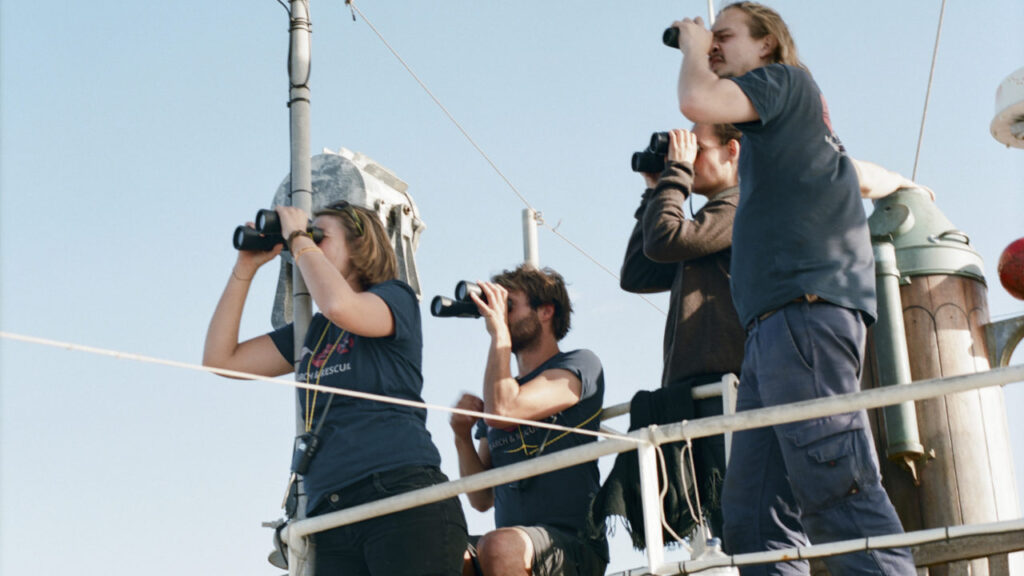The Future Is Now

We are living through pandemic times. As well as Covid-19, there is a climate pandemic, a pandemic of inequality, a pandemic of polarisation. These individual pandemics are interconnected and together they are creating unpredictable dynamics. There is no going back to a normality that never existed anyway. We need to learn how to navigate pandemic times.
Culture, artists and cultural institutions have played an important role in ensuring that we have emerged halfway intact through this crisis of social distancing, isolation, of new and old borders. This crisis itself is tough enough ‒ but without the ingenuity, imagination and support of arts and culture, it would have been almost unbearable. At the same time, and this is the tragedy, the cultural sector has been hit disproportionately hard. With a loss of 31% of its turnover, the cultural and creative economy is among the most affected in Europe, more than the tourism and automotive industry. With cultural institutions being closed, artists not able to perform, and theatre and film productions on hold, there is a risk of prolonged cultural recession in Europe.
This crisis has been an extreme accelerator of the digital revolution. We have become Zoomers in Amazonia. As with other revolutions, we have to be careful that the digital revolution doesn’t eat its children. After all, who owns and controls the digital operating systems, algorithms and platforms that now determine almost all of our professional, private and public lives? Even if the EU equips itself with a Digital Services Act (DSA), does Europe really play a role here? Except as a data provider, consumer and reactive legislator? The digital platforms and rules are being made elsewhere.
Over decades we have abolished borders in Europe. But two years ago, these borders came up again within days. Hadn’t we almost forgotten what borders were? Major crises have the tendency to create emergency measures that, once introduced, simply live on afterwards. Will we get back to the fully borderless Europe we cherished and what does that mean for European cultural exchange and cooperation?
The EU Recovery Fund – a European Marshall Plan for our times – is a unique opportunity to transform Europe for the better. However, the EU and national governments will not master the challenges of these pandemic times alone. We need to work together. European foundations spend around €60 billion a year. But they could achieve much more if they worked together strategically with governments and the EU to mitigate these pandemic times. So far, however, there is no framework or instrument for this. We need new methods and flexible tools for strategic cooperation of European institutions, governments and the foundation sector, for the benefit of all.
The climate crisis is here and real. It is not a distant theoretical concept, if it ever was. Europe has set itself the task of a green transformation through the European Green Deal. But the green transformation is not just a technical challenge: It is a major societal transformation which needs cultural change. The Green Deal needs a Culture Deal, and vice versa. This is an opportunity for foundations to engage but also a challenge to their own thinking and organisational structures.
The future of Europe is being made now. We simply have no time to wait for tomorrow.
Challenging times are also times of possibilities, invention and opportunities. The crisis has forced responses in record time. Some of those responses were unimaginable before, such as the Eurobonds funded EU Recovery Fund. Some of those emergency measures need to be phased out, such as border closures and obsessive data mining. Some can be retained and further developed, such as more sustainable mobility behaviour and a re-evaluation of global supply chains.
The Conference on the Future of Europe is an opportunity. There are more than enough challenges: Europe is imperfect and needs to improve. But working for the future of Europe is more than a conference, it is more than a one-off citizens consultation: It is part of our daily work and will most certainly last well beyond 2022. The European Cultural Foundation has been working on the future of Europe since 1954 and will continue doing so. Let’s not expect that the future will be decided by conference. Let’s continue focusing on the important work which needs to happen now to regain people’s confidence in the future, confidence in the future of Europe. 2022 will hopefully be an important milestone on the way. The future is now*.
*The Future Is Now is the title of the 2022 work plan of the European Cultural Foundation which includes the Culture of Solidarity Fund, the European Pavilion, Europe Challenge, the Cultural Deal for Europe, Culture for Climate Action and many European partnerships. In 2022, the foundation will bring all these initiatives together on 9 May, Europe Day, as a curated contribution to the Conference on the Future of Europe.
Find out more and join us. https://culturalfoundation.eu/stories/new-year-message-2022/
Authors

André Wilkens is the director of the European Cultural Foundation in Amsterdam. André is also the Board Chair of Tactical Tech, the co-founder of the Initiative Offene Gesellschaft and a founding member of the European Council on Foreign Relations. In the past he worked as Director of the Mercator Centre Berlin, Director of the Open Society Institute Brussels and as Head of Strategic Communications of UNHCR in Geneva. André is the author of two books on Europe and on Digitalisation.
